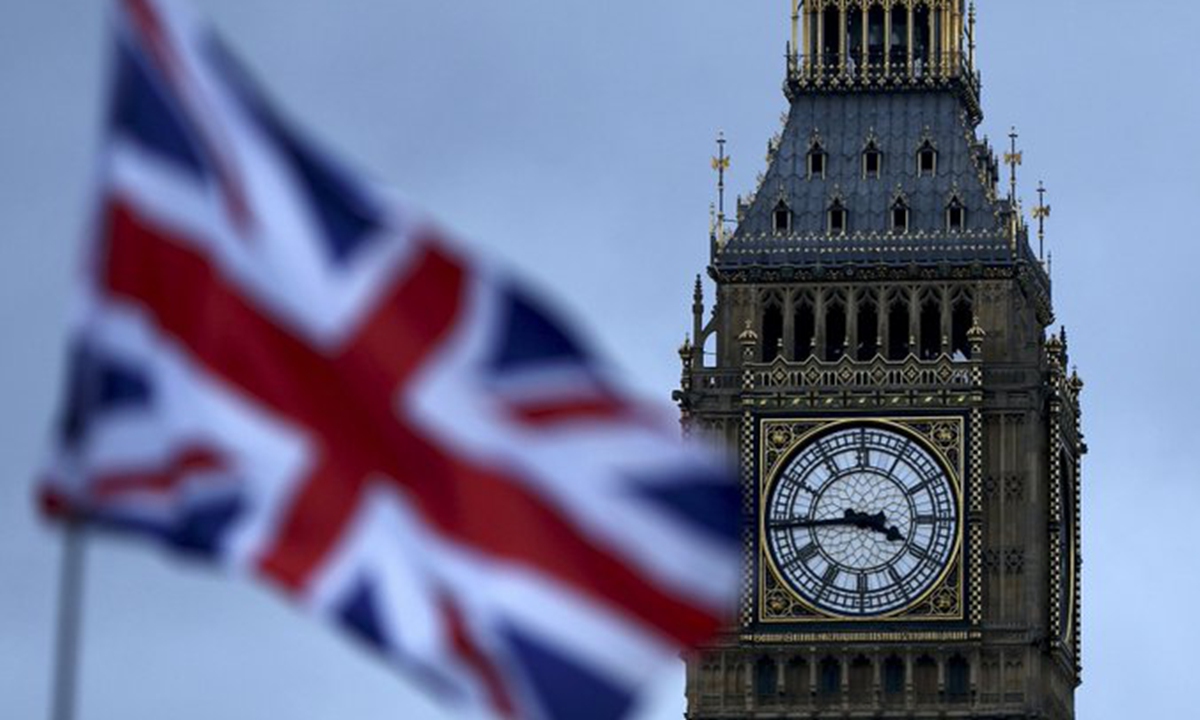What lies behind the UK’s changing attitude toward China?
By Tian Dewen and Tian Yuewan Source:Global Times Published: 2020/6/9 22:29:57

Photo: Xinhua
The relationship between China and the UK has seen vital change since the outbreak of the novel coronavirus. Media reports have noted that the UK government led by British Prime Minister Boris Johnson is clearly changing its attitude toward China. Rising concerns noted that the golden era of China-UK ties may have ended.
Among the UK's recent moves, some senior British officials have repeatedly tried to pass the buck to China on issues surrounding COVID-19 prevention. After saying the two countries can't have "business as usual" after the pandemic, British Foreign Secretary Dominic Raab again tried to raise conflict by repeatedly claiming the UK had a "responsibility" to the Hong Kong Special Administrative Region following China's announcement of a new national security law for the city.
The Johnson administration has declared it may change its former policy of including Huawei in its 5G network construction at a 35 percent cap. The UK government is also reportedly set to announce new laws to prevent foreign takeovers that would pose risks to the country's national security, and may even halt academic cooperation projects between universities and companies. Such moves are often seen to be targeting China.
In 2015, China and the UK sealed a global partnership with a joint declaration on building a global comprehensive strategic partnership for the 21st century. What has since changed in the UK?
Domestically, the UK's Conservative and Labour parties have put forward loud voices holding a negative attitude toward China, leading to mounting pressure on Johnson's government. With almost twice the expected number of deaths resulting from COVID-19 in the country, the government may further blame China in a bid to find a scapegoat.
As a Five Eyes member, the UK is facing huge pressure from the US. And that pressure is mounting as the US has decided to raise its ill-intentioned crackdown on Huawei. Media reported Johnson's recent decision on Huawei is a signal paving the way for his visit to Washington for the G7 summit. Trade negotiations with the EU have also hit a deadlock, forcing Johnson to move closer to the US.
Though the UK has clearly altered its attitude toward China, it is not yet clear whether it has firmly sided with the US in the matter.
Former British Prime Minister Benjamin Disraeli, who was in power during the 19th century, once said the country has no permanent friends, no permanent enemies, but only permanent interests. That has remained one of the characteristics of the nation's foreign policy.
Though the UK has long said its ties with the US are of a special nature, no one has truly taken such sentiment seriously.
The UK previously announced its plans to establish a Global Britain after leaving the EU, reflecting its intention of playing an international role in the world. It has since seen a series of setbacks: a dramatically prolonged Brexit, heated domestic political disputes and the coronavirus pandemic. Under such tense circumstances, it is foreseeable that the UK may again attempt to slide toward the US. But becoming a follower of the US is not in line with the UK's aim for a Global Britain.
Given that the UK's foreign policy maintains themes of flexibility and practically upholding the country's interests, China-UK ties will eventually return onto a cooperative track so long as such a shift is in accordance with the UK's national interests. The two sides need to regain mutual political trust after the pandemic and jointly promote the normalization of bilateral relations through practical cooperation in different aspects.
Tian Dewen is a vice director of the Institute of European Studies under the Chinese Academy of Social Sciences. Tian Yuewan is a doctoral candidate at the Chinese Academy of Social Sciences. bizopinion@globaltimes.com.cn
Posted in: EXPERT ASSESSMENT